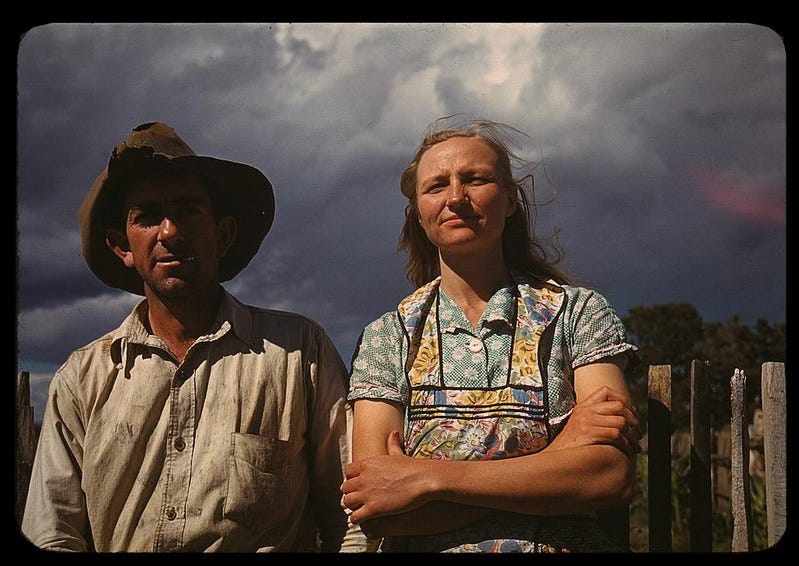Today’s Contemplation: Collapse Cometh CLXXIX–Archaeology of Overshoot and Collapse
It’s been a few months since I last posted a Contemplation. There are a variety of reasons for this.
I’ve been ‘distracted’ by the preparations in my gardens for the upcoming growing season. The unseasonably warm weather here north of Toronto allowed me to get outside quite a bit earlier than previous years and I’ve put that time to use performing all those preparatory tasks I need to do: post-winter clean-up, setting up my rain barrel system (that gets ‘dismantled’ in the fall given the snow and cold our region receives in the winter), preparing the ever-increasing number of garden beds, getting seed potatoes and a variety of other seeds in (i.e., pea, bean, carrot, and kale), mixing up new soil (compost + ‘used’ soil + peat moss + vermiculite), spreading mulch over many of the beds, and finishing up some stairs and a work area in behind my greenhouses that I began last year. These things are on top of the hydroponic seed-growing system I established in the past couple of years and some weeks ago began several dozen seeds (tomato, squash, eggplant) and required periodic attention and, finally, transplanting into pots/grow bags/raised beds.
As most of this prepping is now complete my activities have already shifted towards maintenance of crops (especially the perpetual trimming/training of vines/canes) and working on the next ‘big’ project (dismantling an older experiment with composting and replacing the wooden retaining walls with brick/stone).
On top of this, I made a pledge to myself to reduce significantly my screen time. So that’s also reduced my reading and writing time. While not helping to minimise my cathartic needs that writing brings, less screen time does focus my energies on actionable, physical endeavours that in the end I believe are far more immediately relevant; and which require a bit more time with each passing year–apparently, I’m not getting any younger as my back and various joints periodically remind me; and ‘suffering’ through a torn rotator cuff due to a fall playing pick-up hockey (who knew it’s hard to stay upright when you step on another player’s stick?) that has slowed me even more than my ever-increasing age–although I’m ‘fortunate’ that it’s only certain arm motions that have been restricted and I’ve still been able to haul heavy objects around and do the majority of physical chores that need doing.
In addition, I occasionally think of that line from the Talking Heads song, Psycho Killer: “Say something once, why say it again”. And as I think about many of my Contemplations, the repetition of some themes/topics cannot help but be obvious; and the repeating of them increasingly seems pointless since we all believe what we wish to believe (especially that which addresses our confirmation biases)–the choir that I preach to will accept my stories while those who do not will in all likelihood never, regardless of ‘evidence’ or persuasiveness–we are a rationalising species, not a rational one.
And, this writing ‘hobby’ (despite the long-ago initial motivation: marketing my ‘fictional’ novel trilogy) is a money-losing prospect where the income from my novel sales is significantly less than the ‘channel fees’ I pay to my self-publisher for keeping the print version of my first book available; to say nothing of the fees for maintaining a website presence. Being on a pension for the past 10+ years makes one just a tad more concerned about ‘superfluous’ expenditures such as personal hobbies.
I’ve also been spending a lot of time attempting to both update my website (still more to do) and post all my Contemplations on Substack (now complete). So, if you’re relatively new to my writing and find yourself looking for more to confirm or challenge your beliefs, please peruse my website, Substack, or Medium page.
Finally, perhaps most importantly, I am attempting to spend more time with my wife. We try to get our dog out for a 30-45 minute forest walk every morning, and have been enjoying other time together as we reconnect after many years of giving our time and energy to ‘raising a family’ and careers in education (and other people’s children). And as I experience my adult children’s periodic struggles with our increasingly complex (dare I say, ‘collapsing’) world, I am also attempting to be present and supportive for them more than I have in the past.
Realising that one is closer to the end of this roller-coaster ride of life than the beginning puts things in perspective and pulling back on the amount of time I engage in a somewhat self-indulgent ‘hobby’ seems apropos. Reading and writing have taken a distant backseat to my attempts to ‘live in the moment’, that is sometimes ‘difficult’ when one filters a lot of what’s going on in our world through an ‘overshoot-collapse’ lens.
Or, maybe all the above is a personal rationalisation/justification for just being ‘collapse weary’ and realising how fubar our species is and my ‘pontificating’ over it is accomplishing little. Actions over words is where my mind is settling, and those actions are oriented towards personal, familial, and community resiliency and sufficiency in a ‘collapsing’ world.
In summary, my time spent sitting in front of my computer or even just with a book/article is being reduced significantly as a result. What time I have had in the early mornings as I’m enjoying a couple of mugs of coffee, is oriented towards perusing some articles and doing some other personal chores. I am even going to be scaling back the ‘current events/articles’ I share via my website–perhaps just performing this periodically.
And as I continue to reflect upon and contemplate our predicament and how to perhaps ‘insulate’ my family/community from the changes to come, I am shifting towards an attempt to understand more fully what past complex societies did in response to societal decline/collapse/simplification. There are clues in these responses as to how we can better adapt to the societal transition that is upon us.
Given the above, then, I am thinking of changing tack with my writing. I am going to begin reading, summarising, and commenting upon academic/research articles that pertain to the two most common themes of my writing: societal collapse and human ecological overshoot. Combined with the aspects I outlined above, this will necessarily slow down significantly my screen time and writing; academic work can oftentimes be more ‘dense’ and time-consuming to process (especially if one is not repeatedly immersed in the field of study and the style of writing)–at least, this is true for me. I am going to aim for posting a new Contemplation at a rate of about once every 4-8 weeks; maybe more, maybe less–we’ll see.
The first such article I wish to share and comment upon is one from archaeologist Joseph Tainter that looks at the archaeological evidence that suggest examples of ecological overshoot and societal collapse. My thoughts regarding it follow…
Archaeology of Overshoot and Collapse
Joseph A. Tainter
Annual Review of Anthropology, 2006, Vol. 35, pp. 59-74.
After suggesting that the concept of overshoot traces its roots to Malthus’s argument that population (which grows exponentially) would overshoot food supply (which grows linearly), Tainter argues that population numbers, consumption of resources, and waste production are the main concerns surrounding human ecological overshoot. He also suggests that the concept of collapse has been poorly defined by researchers but commonly is assumed to be a loss of both population numbers and societal complexity.
He reviews the pre/historic record for evidence of societal collapse brought on by ecological overshoot and proposes that overshoot goes beyond simply population and consumption, and may include political aspects, economic costs to society (especially its ability to pay for ever-growing complexities), and technological capabilities (particularly with regard to transportation and communication).
The studies Tainter reviews include collapse for the Maya lowlands (whose collapse has been blamed upon ecological factors, a growth system, and sociopolitical and socioeconomic policies), and Mesopotamia (Ur dynasties, that experienced diminishing returns on its resource base, and overreach via excessive socioeconomic policies).
Chew’s (2001) studies of ecological degradation over the past 5000 years using World Systems Theory concluded that excess consumption led to environmental degradation and eventual collapse for societies of the past. Basically, “… over-exploitation of resources due to capital accumulation, urbanization, intense land use, and population growth led to constraints on continued expansion and ‘a downscaling of material and cultural lifestyles’”.
Diamond’s (2005) overshoot model similarly argues that the foundational cause of collapse for a society is degradation of the environment, however it also includes the variables of local ecology, hostile neighbours, social responses, climate, and trade partners. While disagreeing with most of Diamond’s examples (mostly because of rare, adverse conditions that prevented adaptation), Tainter suggests the best case for overshoot, resource degradation, and collapse presented is that for Easter Island.
Tainter appears to agree fully with the assessment that Easter Island’s complex society ‘collapsed’ in the sense of a loss of organisational capacity. Several researchers suggest deforestation kicked off a cascading set of events: decline in fishing and farming, increase in warfare and insecurity, settlement pattern shifts, population decline, and, finally, sociopolitical collapse.
Tainter reviews a number of theories regarding overshoot and collapse, using the archaeological record as a measuring stick to gauge their viability, including: Meggar’s (1954) environmental limitation theory, Cooke’s (1931) and Sanders’s (1962) research regarding the consequences of low-production swiddening leading to overshoot and collapse, and Culbert’s (1988) elite-driven agricultural intensification resulting in resource degradation and eventual overshoot.
He suggests that Ur’s Third Dynasty and the Abbasid Caliphate may be the best candidates for assessing population overshoot, resource degradation, and sociopolitical collapse, but then argues the evidence indicates that neither show Malthusian overshoot, nor one brought on by excess production (today’s primary concern).
Further, he concludes that Chew’s (2001) analyses of Bronze Age societies are not supported by the empirical evidence.
Diamond’s (2005) analyses demonstrate a misunderstanding of ‘collapse’ (Norse Greenland and Pitcairn and Henderson Island) and confuse Malthusian overshoot with overshoot due to extreme climatic conditions (Maya and Southwest U.S.). And even Easter Island is not likely to qualify as a case of overshoot and collapse since the loss of giant palms (the identified tipping point leading to collapse by many) was likely more due to the rats brought by the original settlers than to human population overshoot.
Tainter concludes that the archaeological literature contains few cases that suggest population and/or mass consumption overshoot followed by environmental degradation and sociopolitical collapse. He further suggests that most of the interpretations that argue for overshoot are not credible; those that are lead to the conclusion that overshoot only occurs during extreme conditions [this aligns with his thesis in The Collapse of Complex Societies in that collapse is brought about by a society’s inability to respond to crises due to reserves being depleted via their use to sustain status quo systems as a consequence of diminishing returns having been encountered on investments in problem-solving].
Rather than cases of overshoot, we see examples of elite mismanagement and lack of proper feedback to governing institutions to correct misguided policies and actions. The human ability to adapt, especially in terms of agricultural intensification, is often denied by those seeking examples of overshoot. Greater resource production always appears possible via capital and technology application, labour, knowledge intensification, and/or energy subsidies.
The argument can be made that increasing mechanisation, irrigation, fertilisation, and/or labour have all resulted in increased production–proving Wallace, Erlich, Jevons, and Malthus wrong. In addition, societies may choose to simplify to a less costly organisation and/or reduce consumption; this is what the Byzantine Empire chose in the 7th-century AD when it lost its wealthiest provinces (Tainter notes this “may be history’s only example of a large complex society systematically simplifying” (p. 72)).
Despite the above, Tainter wonders whether our modern world can continue to intensify production indefinitely escaping a Malthusian fate. Neoclassical economists argue markets will always uncover new resources so overpopulation and/or overconsumption is not ever a concern.
“The contrary view is well known. We must reduce our ecological footprint or eventually collapse. The neoclassical argument is based on faith that markets will always work and denial of diminishing returns on innovation. Should we base our future on faith and denial, or on rational planning?” (p. 72).
More detailed summary notes can be found here.
My Thoughts
The lack of agreement over what constitutes overshoot and/or collapse is not unimportant. One of the ‘insights’ I gained over my decade of post-secondary education and subsequent observations of human perceptions of our universe is that the exact same observable phenomena are oftentimes (if not always) interpreted in different ways–sometimes even diametrically opposed to one another. I would argue that this is especially true when one is dealing with broad concepts such as ‘collapse’ and ‘overshoot’. Ask archaeologists what ‘collapse’ is and you’re likely to get many different answers; in fact, you’re likely to also get some that argue the term is inappropriate for what is observed via the artifactual remains of human complex societies (i.e., societies don’t ‘collapse’, they ‘adapt’).
Differences in what societal ‘collapse’ and/or ‘overshoot’ are and how they present themselves in the archaeological record can lead to quite disparate explanations about the process and responses. Despite the ideal of science being a dispassionate and objective enterprise, it is performed by humans with all the subjectivities, foibles, and predilections that we possess. We often if not always see what we want to see and interpret the world to support our beliefs. Scientists are no different and can become enmeshed in particular paradigms and echo chambers. Where one sees clear evidence of societal ‘collapse’, another sees examples of innovative adaptation.
The ability of humans to adapt to changing conditions, particularly around resource production, is predicated upon our capacity to shift behaviour and/or leverage resources–especially energy. One must wonder, as Tainter does, whether this is possible for our modern globalised and industrialised world. It would seem this is especially so where the all-important energy subsidy for hydrocarbons may not exist; certainly not at the scale necessary to support modern, industrial society’s complexities and its finite resource requirements–no matter how ingenious our species perceives itself to be.
This appears to be where the rubber hits the road. The archaeological evidence may indicate no previous examples of societal collapse due to overshooting of the natural carrying capacity, but past societies were vastly different in the sense that most of the population were skilled and knowledgeable in food production with few ‘elite’ being supported by the labour of the masses, and vast regions of land that had yet to be overexploited by humans existed relatively close by.
The ability of our species to intensify resource production in order to support our numbers and complexities seems in the present severely handcuffed by the lack of an energy subsidy that is capable of meeting the ability of hydrocarbons to do this. Despite narratives that a suitable energy ‘transition’ is not only feasible but in the works, every energy system continues to depend upon finite resources, cannot equal the density nor transportability of hydrocarbons, and serves more to support/sustain growth (in that they are additive to our energy use rather than supplanting any) than adapt to a simplifying world with much, much less energy–particularly net energy–to support our expansion and complexities, let alone continue to sustain the status quo.
The combination of increasing ecological systems destruction/degradation–because of our massive expansion in both numbers and corollary resource consumption and waste production–and very significant dependency upon a single energy resource (that is finite in nature and has encountered significant diminishing returns) has painted us into a corner.
While it has been said that history never repeats itself precisely but tends to rhyme with the past, the archaeological record has shown that virtually every iteration of human societal complexity has eventually reached a zenith and then simplified/collapsed. Our story, then, is likely to be quite similar but with idiosyncratic twists and turns not experienced in the past. Predicting exactly what will happen, or when, is complete guesswork.
From my perspective, our pre/historical record can provide signals as to what we might expect (bearing in mind that differences in the interpretation of artifactual remains and their import alters the story told). Whether humanity can avoid and/or mitigate the trials ahead of us is yet to be seen–especially in a fractured world where the worst of us seem to be steering the policies and actions to be taken as we bump up against the limits of what is and is not possible.
The current lack of skills/knowledge to be self-reliant/-sufficient (at a scale far, far beyond past societal simplifications where skilled families/communities could extricate themselves from the sociopolitical/-economic complexities and their disintegration via migration and/or self-sufficiency) combined with widespread ecological systems destruction due to humanity’s expansive reach and extractive proclivities, as well as significant diminishing returns on resource extraction and energy-averaging systems (i.e., trade to subsidise the lack of local resources) indicates exceedingly chaotic times ahead for homo sapiens 8 billion individuals and their complex societies.
The tales that will be told by we story-telling apes as the species collectively stumbles into this chaotic future and argue incessantly over how to ‘solve’ our insoluble predicaments will be something to behold. I can’t help but wonder what myths about our peak global society will emerge on the other side of this stupendous clusterfuck we have created. My ‘hope’ is that humanity can meet these ‘challenging’ times with grace and dignity; my prediction, however, is that we will not.
Best of luck to all in the journey ahead.
Snapshot of articles I’ll be reading/summarising over the next year or more:
- The Origins of Agriculture. Kent Flannery, 1973.
- Archaeological Contributions to Climate Change Research: The Archaeological Record as a Paleoclimatic and Paleoenvironmental Archive. Daniel H Sandweiss and Alice R. Kelley, 2012.
- Archaeology, Ecological History, and Conservation. Frances M. Hayashida, 2005.
- What Cultural Primatology Can Tell Anthropologists about the Evolution
of Culture. Susan E. Perry , 2006.
- Social Stratification. Frank Cancian, 1976.
- The Archaeology of Equality and Inequality. Robert Paynter, 1989.
- The Evolution of Complexity in the Valley of Oaxaca. Stephen A. Kowalewski, 1990.
- Institutional Failure in Resource Management. James M. Acheson, 2006.
- Population Control and Politics. Jack Parsons. 1991.
- Population Growth Through History and the Escape From the Malthusian Trap: A Homeostatic Simulation Model. Marc Artzrouni and John Komlos. 1985.
- Population Viability Analyses with Demographically and Spatially Structured Models. H. Reşit Akçakaya. 2000.
- Optimum Human Population Size. Gretchen C. Daily, Anne H. Ehrlich and Paul R. Ehrlich. 1993.
- Is Human Culture Carcinogenic for Uncontrolled Population Growth and Ecological Destruction? Warren M. Hern. 1993.
A handful of ‘recent’ articles of interest (you can view many more on my website):
https://profstevekeen.substack.com/p/the-role-of-energy-in-production
https://erikmichaels.substack.com/p/new-developments-and-accepting-our
https://collapselife.substack.com/p/the-surveillance-state-will-be-a
https://www.collapse2050.com/living-in-fear/
https://www.thedailydoom.com/p/truth-or-consequences
https://thehonestsorcerer.substack.com/p/musings-on-the-nature-of-technology
If you’ve made it to the end of this Contemplation and have got something out of my writing, please consider ordering the trilogy of my ‘fictional’ novel series, Olduvai (PDF files; only $9.99 Canadian), via my website or the link below — the ‘profits’ of which help me to keep my internet presence alive and first book available in print (and is available via various online retailers).
Attempting a new payment system as I am contemplating shutting down my site in the future (given the ever-increasing costs to keep it running).
If you are interested in purchasing any of the 3 books individually or the trilogy, please try the link below indicating which book(s) you are purchasing.
Costs (Canadian dollars):
Book 1: $2.99
Book 2: $3.89
Book 3: $3.89
Trilogy: $9.99
Feel free to throw in a ‘tip’ on top of the base cost if you wish; perhaps by paying in U.S. dollars instead of Canadian. Every few cents/dollars helps…
https://paypal.me/olduvaitrilogy?country.x=CA&locale.x=en_US
If you do not hear from me within 48 hours or you are having trouble with the system, please email me: olduvaitrilogy@gmail.com.
You can also find a variety of resources, particularly my summary notes for a handful of texts, especially Catton’s Overshoot and Tainter’s Collapse: see here.
It Bears Repeating: Best Of…Volume 1
A compilation of writers focused on the nexus of limits to growth, energy, and ecological overshoot.
With a Foreword and Afterword by Michael Dowd, authors include: Max Wilbert; Tim Watkins; Mike Stasse; Dr. Bill Rees; Dr. Tim Morgan; Rob Mielcarski; Dr. Simon Michaux; Erik Michaels; Just Collapse’s Tristan Sykes & Dr. Kate Booth; Kevin Hester; Alice Friedemann; David Casey; and, Steve Bull.
The document is not a guided narrative towards a singular or overarching message; except, perhaps, that we are in a predicament of our own making with a far more chaotic future ahead of us than most imagine–and most certainly than what mainstream media/politics would have us believe.
Click here to access the document as a PDF file, free to download.

















